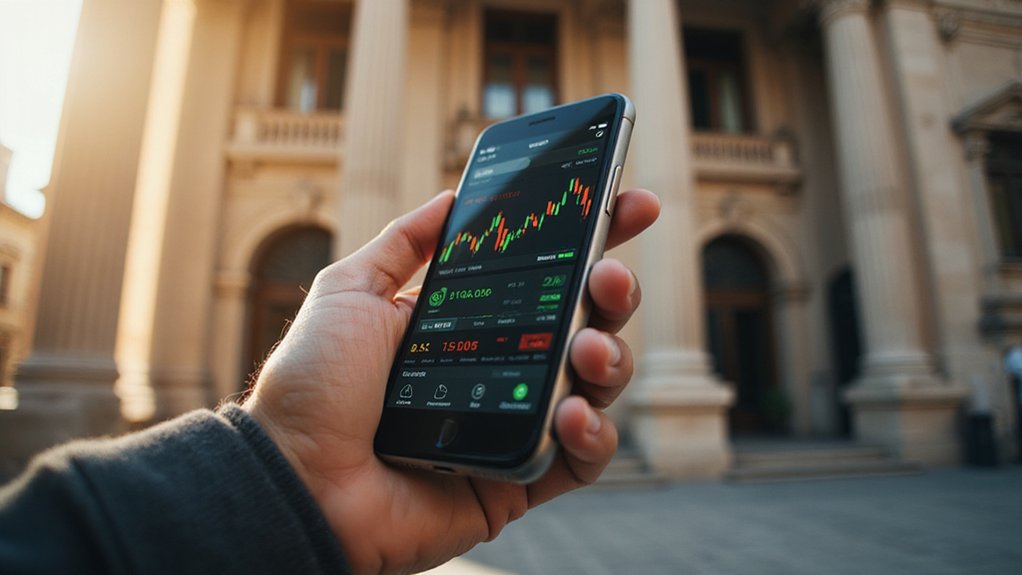While traditional financial institutions continue their glacial march toward blockchain integration, Coinbase has decided to leapfrog the competition entirely with its audacious vision of an “everything exchange”—a unified platform that would allow traders to seamlessly move between cryptocurrencies, tokenized stocks, derivatives, and prediction markets as if they were browsing different aisles in some dystopian financial supermarket.
The centerpiece of this ambitious expansion involves launching tokenized U.S. stocks, a first for domestic exchanges that transforms traditional equities into blockchain-based instruments. Unlike their paper-certificate ancestors, these digital representations of real companies enable fractional ownership and round-the-clock trading—because apparently, the stress of watching your portfolio hemorrhage value during market hours wasn’t quite sufficient for modern investors.
Coinbase’s timing appears fortuitous, capitalizing on recent regulatory shifts including the Trump administration’s rollbacks and the SEC’s Project Crypto initiative, which aims to modernize securities regulations. These policy changes have relaxed constraints on tokenized assets, clearing a path for Coinbase to target the $100 trillion traditional equity market directly within U.S. borders—a playground where competitors like Kraken remain geographically constrained.
Coinbase exploits regulatory tailwinds to colonize the $100 trillion equity market while rivals remain shackled by geographic limitations.
The platform’s prediction markets represent an equally intriguing development, allowing users to trade on real-world event outcomes rather than conventional asset price movements. This addition transforms Coinbase into something resembling a financial casino where participants can wager on everything from election results to economic indicators, all while maintaining the veneer of sophisticated trading through blockchain transparency and security features. This expansion occurs at a time when Bitcoin’s meteoric rise past $106,000 has raised concerns among analysts about potential volatility in the broader crypto markets.
The Base App, currently in open beta, serves as the primary gateway for accessing these tokenized assets and financial instruments, positioning itself as the bridge between traditional finance and blockchain-based markets. This strategic shift beyond native cryptocurrencies toward a broader financial ecosystem reflects Coinbase’s recognition that diversification might prove essential for survival in an increasingly crowded marketplace. The exchange’s partnership with JPMorgan further reinforces this comprehensive approach, allowing users to fund their accounts directly through Chase credit cards starting in Fall 2025. Additionally, the company has demonstrated its institutional conviction by acquiring 2,509 BTC in Q2 2025, bringing its total Bitcoin holdings to 11,776 BTC.
Despite regulatory progress, no official launch date has been announced for tokenized stocks, leaving the timeline dependent on further regulatory clarity. Nevertheless, Coinbase’s bold positioning suggests confidence that policy changes designed to attract crypto innovation will continue fostering broader market participation in this brave new world of digitized everything.









